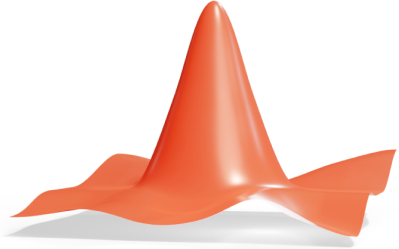R1
Hvordan vurderer du en funksjon som går mot 0/0?
{
"voice_prompt": "",
"manuscript": {
"title": {
"text": "How Do You Evaluate a Function Approaching 0/0",
"audio": "How Do You Evaluate a Function Approaching 0/0"
},
"description": {
"text": "When a function approaches 0/0, use limits to evaluate it. Here's how you do it: 1. Factorize and simplify the expression 2. Plug in your x value and calculate",
"audio": "When a function approaches 0/0, use limits to evaluate it. Here's how you do it: 1. Factorize and simplify the expression 2. Plug in your x value and calculate."
},
"scenes": [
{
"text": "Imagine a rollercoaster. You want to know its height above the ground at every point along the track.",
"latex": ""
},
{
"text": "You’re given this function for the height:\n\nh(x) = x cubed minus eight over (x - 2)",
"latex": "h(x) = \\frac{(x^3 - 8)}{x - 2}"
},
{
"text": "Let's say you want to calculate the height at x=2. You plug 2 into the function and get 0 over 0. That is undefined and you can't say anything about the function value at x=2.",
"latex": " h(2) = \\frac{(2^3 - 8)}{2 - 2} \\frac{0}{0}"
},
{
"text": "If you look at the function, it looks like h of 2 should be 12. But how can you evaluate the expression at the point where you get 0 over 0? If you can't evaluate the expression at x=2, you try to get as close as possible and see what values you get.",
"latex": ""
},
{
"text": "Now let's try to calculate h(x) at 1.9 and 2.1. First you caclulate h of 1.9. h of 1.9 is equal to 1.9 cubed minus eight over 1.9 minus 2. This is 11.41. Then you calculate h of 2.1. h of 2.1 is equal to 2.1 cubed minus eigth over 2.1 minus 2. That equals 12.61. The values lies around 12, as you would expect.",
"latex": "h(1.9) = \\frac{(1.9^3 - 8)}{1.9 - 2}, h(2.1) = 11.41 \\frac{(2.1^3 - 8)}{2.1 - 2} = 12.61"
},
{
"text": " Let's try to get even closer. Now calculate h of 1.99 and h of 2.01. First you caclulate h of 1.99. h of 1.99 is equal to 1.99 cubed minus eight over 1.99 minus 2. This is 11.9401. Then you calculate h of 2.01. h of 2.01 is equal to 2.01 cubed minus eight over 2.01 minus 2. That equals 12.0601. That's even closer to 12. You could continue like this infinitely many times still getting closer and closer to 2. ",
"latex": "h(1.99) = \\frac{(1.99^3 - 8)}{1.99 - 2}=11.9401, h(2.1) = \\frac{(2.01^3 - 8)}{2.01 - 2}=12.0601"
},
{
"text": " Mathematicians has a solution for this. That is called limits, you write it like this. The limit of h of x as x approaches 2.",
"latex": "lim_{x -> 2} h(x) = lim_{x -> 2} (x^3 - 8)/(x - 2) "
},
{
"text": " Now simplify the fraction. Start by factorizing the numerator into x minus 2 times x squared plus two x plus 4. Then cancel the common factor x minus 2 from the numerator and the denominator.",
"latex": "lim_{x -> 2} h(x) = lim_{x -> 2} (x^3 - 8)/(x - 2) = lim_{x->2) \\frac{(x - 2)(x^2 + 2x + 4)}{x - 2} = lim_{x->} x^2 + 2x + 4"
},
{
"text": "Now You’re left with a simpler expression. The limit of h of x as x approaches 2 is equal to the limit of x squared plus 2 x plus 4.",
"latex": "lim_{x->2} h(x) = lim_{x->2} x^2+2x+4"
},
{
"text": "When you find the limit of h of x as x approaches 2, You want to figure out which value h(x) approaches as x gets closer and closer to two – you are going infinitely close to 2. ",
"latex": "lim_{x->2} x^2+2x+4 = 2^2+2*2+4 = 12"
},
{
"text": "This is what a limit is: the value a function gets closer and closer to, even if it’s not defined exactly at that point. So, even though h(x) is not defined at x = 2, you can say that the height of the rollercoaster gets *very close* to 12 as you approach that point.",
"latex": ""
}
],
"outro": {
"text": "When a function approaches 0/0, use limits to evaluate it. Here's how you do it: 1. Factorize and simplify the expression 2. Plug in your x value and calculate",
"audio": "When a function approaches 0/0, use limits to evaluate it. Here's how you do it: 1. Factorize and simplify the expression 2. Plug in your x value and calculate."
}
}
}
En_R1_func_limits_to_zero.jsonOpen with Text Editor Share
Displaying En_R1_func_limits_to_zero.json.





















